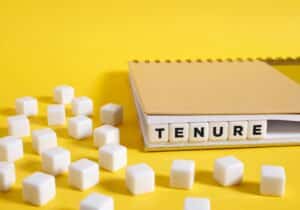School districts are actively recruiting teachers for the best needs of students. School administrators and human resources departments in districts must continuously interview and evaluate highly skilled candidates. The purpose of interviewing candidates is to find the best fit for the school. School districts have a variety of ways to recruit teachers, whether it is at district or state lead recruitment fairs or at an individual school. What exactly do school districts look for when hiring teachers?
What School Districts Look for When Hiring Teachers
Passion
Teaching students is a great endeavor. For those interested in becoming a teacher, students are a priority. District leaders are looking for passionate teachers about student learning and achievement. Also, building-level administrators are looking for teachers who focus on building student relationships, knowledge of curriculum and instruction, and the ability to connect with students.
Understanding passion and purpose is important when hiring teachers to the education field. Whether a new teacher or a veteran educator, it is essential to recruit and retain teachers with the skills to elevate student achievement and impact the students social and emotional growth. Moreover, a teacher must be approachable. Administrators, teachers, support staff, parents, and most importantly students, need to feel comfortable speaking with and consulting all staff members.
Strong Interpersonal Skills
Having strong interpersonal skills is key to student success and collaboration with other teachers, administrators, and school staff. Having the ability to build consensus, understand emotions, and impart knowledge to students helps foster growth with students. School administrators must use their skills to build relationships with teachers and give teachers access to administrative support and continuous professional development.
A teacher who is positive, upbeat, and can relate to and work with many other types of personalities is one that is highly valued. Collaboration cannot be a mere buzzword. It is vital for school teams, professional development, mentoring, planning school events, etc.
Compassion
It has been said that, “students don’t care how much you know, until they know how much you care.” Educators must have patience, compassion, and the ability to relate to students and their lives. Having a relationship-based approach is vital to establishing rapport with students and reaching long-term goals. Many students come to school with socio-economic challenges as well as personal issues.
Regardless of if a student is in elementary, middle, or high school, students are continuously growing and learning daily. Social-emotional learning is important to developing students for success. An educator with compassion will be able to connect with students and also use best practices to teach and develop students into future leaders.
Teachers, school administrators, and school counselors all have a stake in teaching students how to manage emotions, have compassion for others, and develop skills that will impact others in the future. For a teacher, using individual and professionally developed skill sets will contribute to the growth and development of students. When hiring teachers for a role in the classroom, administrators look for the particular skill sets of teachers and how they can improve instruction.
Skill Sets
Characteristics of highly effective teachers include having the ability to facilitate instruction in multiple platforms, use cultural relevance, and the ability to collaborate with others to implement effective instruction. Further skill sets of teachers comes from the ability to plan out lessons, understanding of transition times, and how to check for student understanding.
School districts hiring often look for trained teachers. Colleges and universities have teacher education programs at the bachelor’s level that train prospective teachers in pedagogy, content knowledge, and child development. Teacher education programs include concentrations in elementary, middle, and high school.
Some positions even require further education or offer a higher salary to compensate for advanced education. For those who want to further their education, they can pursue a Master’s in Education.
Some examples of these concentrations are:
Teachers today must have a good grasp of using data to set benchmarks, goals, and other targets. A good school leader will emphasize and utilize the best programs and practices for data tracking. Academic effectiveness will be measured through these and other modes of assessment.
There are other measures of effectiveness:
- What is the emotional climate in a teacher’s classroom?
- Are they effective at promoting positivity, a good self-image, perseverance, and teamwork?
- Do the students in the class treat each other with respect and is bullying kept to a minimum?
An effective teacher will promote and produce academic and emotional health.
Further:
- Does the teacher possess the ability to take direction and accept constructive criticism?
- In other words, are they teachable?
- If they are not, you most likely will not see improvement over time.
School districts look for, hire, and mentor teachers that are continuously looking to improve their overall skill set. These are the primary qualities I look for in a teaching candidate and then in a full-time teacher.
Effectiveness
Promoting teacher effectiveness is important for professional development, student achievement, and establishing a positive school culture and climate. Ways to establish teacher effectiveness include teacher induction and mentor programs, access to graduate degree programs, and establishing professional learning communities. Having mentor teachers and teacher leaders in the building helps to optimize teacher skills and classroom and school-wide leadership.
To enhance their skills, many teachers pursue graduate degree programs. Other avenues to increase effectiveness include pursuing the National Board Certification. Obtaining this certification comes with creating a portfolio of teacher works and gives teachers an increase in pay for completing the program. Research shows that when teachers have access to continued professional development, students see an increase in student achievement and build capacity at the school level.
Moving Beyond the Classroom
For school districts, it is important to recruit and retain high-quality teachers, but it is also essential to create leadership opportunities for teachers and district staff. Educators who want to continue to make an impact with students outside the classroom can find other opportunities for growth. This includes becoming a school administrator, school counselor, instructional coach, and more.
When looking to hire education professionals outside of the classroom the same skills apply. Collaboration, building relationships, and a knowledge of effective teaching and learning all are assets to creating a positive and progressive environment for students and the community. School districts who focus on the needs of students first continue to recruit educators for success and the continued growth and development of the student, school, and broader community.
School districts look for teachers that are willing to contribute to and help shape the life of the school beyond the classroom. Staff that come out for extracurricular events, volunteer to serve on committees, and help foster a collegial atmosphere will help build a positive school culture.
If you’re interested in pursuing an advanced degree and want to learn more, check out our online, hybrid, and in-person master’s and doctorate degrees today!




